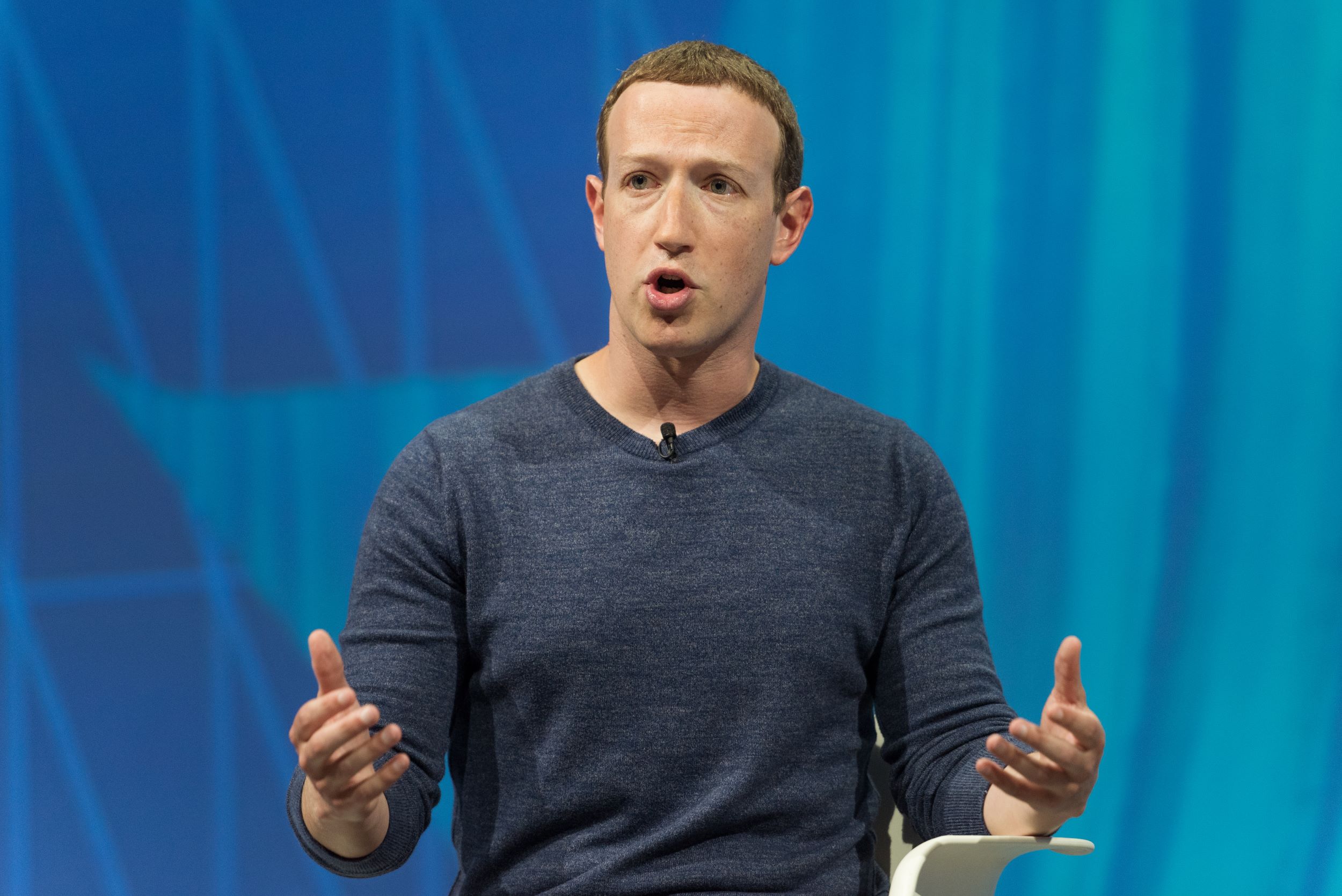Tech Titans and Donald Trump: A Behind-the-Scenes Look at Silicon Valley’s Political Dynamics
As the U.S. presidential election approaches, the spotlight typically shines brightly on the contenders. However, recent claims from former President Donald Trump suggest that some of Silicon Valley's most influential figures are quietly engaging with him, even as they publicly maintain a stance of neutrality. This intriguing development raises questions about the intersection of tech power and political influence in a crucial election cycle.
A Quiet Outreach Amid Political Tensions
In a series of recent statements, Trump asserts that several tech CEOs are actively reaching out to him. Prominent figures like Sundar Pichai, CEO of Google, and Mark Zuckerberg, head of Meta, have faced criticism from Trump in the past, particularly regarding what he perceives as the suppression of conservative voices on their platforms. Yet, as the polls tighten in the race against Vice President Kamala Harris, Trump claims these leaders are becoming more favorable toward him, aligning their interests with the possibility of a Trump victory.
According to reports from the Washington Post, influential business leaders are adopting a cautious approach, potentially recognizing the implications of Trump’s return to power. Tesla CEO Elon Musk has made his support for Trump explicit, contributing financially to his campaign.
Sundar Pichai's Alleged Congratulatory Call
During a recent appearance on Joe Rogan's podcast, Trump shared that he received a call from Pichai congratulating him on a viral stunt involving McDonald's. "This McDonald's thing, I want to tell you, it’s one of the biggest things we’ve seen on Google," Trump claimed Pichai told him. He reiterated this during a rally in Pennsylvania, emphasizing the significance of the alleged conversation. However, Pichai has not confirmed these details, and Google has yet to respond to requests for clarification.
If Trump wins the 2024 election, the implications for Google and the broader tech industry could be profound. A Trump administration may roll back regulations aimed at curbing monopolistic practices and promoting data privacy, potentially benefiting major players like Google. The tech giant could see more favorable conditions for its advertising business, which has faced increasing scrutiny and calls for regulation from both sides of the aisle. Additionally, the rollback of antitrust investigations might enable Google to expand its services and market share without the fear of regulatory pushback.
Tim Cook’s Friendly Outreach
Earlier this month, Trump also claimed that Apple CEO Tim Cook reached out to express concerns about a hefty fine imposed on Apple by the European Union. “He mentioned they’re using that to run their enterprise,” Trump recounted, to which he responded, “But Tim, I got to get elected first.” This exchange reflects a notably friendly rapport between Trump and Cook, who maintained a relationship during Trump's presidency and participated in advisory panels that shaped Apple’s policies on tariffs and immigration.
Should Trump reclaim the presidency, Apple might benefit from a more business-friendly environment. Trump has historically favored deregulation, particularly regarding trade and taxes. A reduction in tariffs on imported materials could lower production costs for Apple, allowing for greater profit margins and potentially lower prices for consumers. Furthermore, Trump’s administration might be more lenient toward China, where a significant portion of Apple’s manufacturing occurs, easing the strain on the company’s supply chain and operations.
Mark Zuckerberg's Conditional Support
In the wake of a summer assassination attempt against Trump, he alleged that Zuckerberg reached out to express his support, stating, “I will never vote for people running against you after watching what you did.” However, a spokesperson for Meta quickly disputed this account, asserting that Zuckerberg has not endorsed any candidate for the upcoming election. Despite past tensions between Trump and Zuckerberg—especially over accusations of censorship—this incident hints at a complex relationship marked by occasional gestures of goodwill.
If Trump returns to power, the implications for Meta and the social media landscape could be significant. Trump has expressed a desire to modify Section 230 of the Communications Decency Act, which provides immunity to platforms for content posted by users. This could force Meta and other social media companies to rethink their content moderation policies, potentially resulting in a more permissive environment for a wider range of political speech, including conservative viewpoints. A shift in this regulatory landscape could embolden Meta to pursue more aggressive strategies for content management and user engagement, impacting how information is disseminated on social media platforms.
Jeff Bezos and Amazon's Political Landscape
Former Amazon CEO Jeff Bezos has recently faced scrutiny for the Washington Post’s decision to refrain from endorsing presidential candidates, which Trump criticized. According to Trump, Bezos called him after the assassination attempt, expressing amazement at the unfolding events. Trump noted, “Despite the fact you own the Washington Post, I appreciate it.” Bezos' connection to government contracts, particularly through Amazon Web Services and Blue Origin, adds another layer of complexity to his relationship with Trump.
A Trump presidency could lead to significant changes in how Amazon operates, particularly regarding government contracts. Historically, Trump has leveraged federal contracts as a tool for both rewarding and punishing companies based on their alignment with his administration’s agenda. If Trump were to regain office, Amazon might find itself navigating a landscape with more direct ties to the federal government, influencing everything from regulations to contract awards. Additionally, Trump’s focus on domestic manufacturing could pressure Amazon to adjust its logistics and supply chain strategies to prioritize U.S.-based operations.
Related: Elon Musk's $1 Million Giveaway Sparks DOJ Investigation
Elon Musk: A Full-Throated Endorsement
Elon Musk's transformation into a vocal Trump supporter represents a significant shift in the tech landscape. Following the July assassination attempt, Musk publicly endorsed Trump on social media, stating, “Last time America had a candidate this tough was Theodore Roosevelt.” His financial backing has been substantial, reportedly exceeding $110 million, and his political action committee, America PAC, is aggressively campaigning to bolster Trump’s support across key battleground states. Musk's presence on the campaign trail and his active promotion of Trump’s candidacy via social media further highlight this alliance.
If Trump wins the election, Musk's companies, particularly Tesla and SpaceX, could see substantial benefits. Trump’s administration might pursue pro-business policies that favor innovation and entrepreneurship, potentially easing regulatory hurdles for electric vehicles and aerospace ventures. Moreover, Musk's advocacy for renewable energy aligns with some aspects of Trump’s agenda, which could lead to greater collaboration on infrastructure projects, especially in the areas of transportation and energy. The synergy between Musk’s ambitious goals and a Trump administration's focus on job creation could catalyze rapid advancements in technology and energy sectors.
Related: Chinese Hackers Target Trump and Vance: Alarming Breach of High-Profile Campaigns
The Broader Implications for Business and Politics
As these interactions unfold, they reveal a fascinating dynamic between Silicon Valley leaders and political figures. The apparent outreach from tech CEOs to Trump underscores the complexities of their positions in a polarized political landscape. With many business leaders adopting a cautious stance, the implications of these relationships extend beyond the election, raising questions about the future of tech policy and governance in the United States.
In conclusion, as we approach a pivotal moment in American politics, the intricate web of connections between tech titans and political figures like Donald Trump showcases the significant influence these leaders wield—not only in the tech industry but also in shaping the future of U.S. policy and global business dynamics. The implications of these interactions will undoubtedly resonate long after the election concludes.














